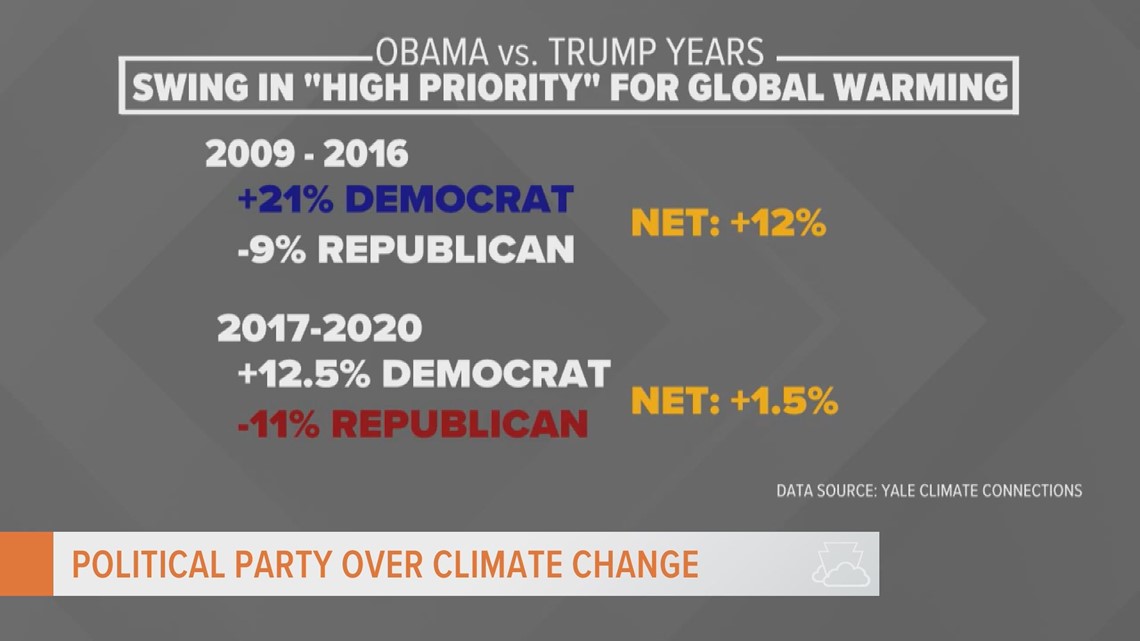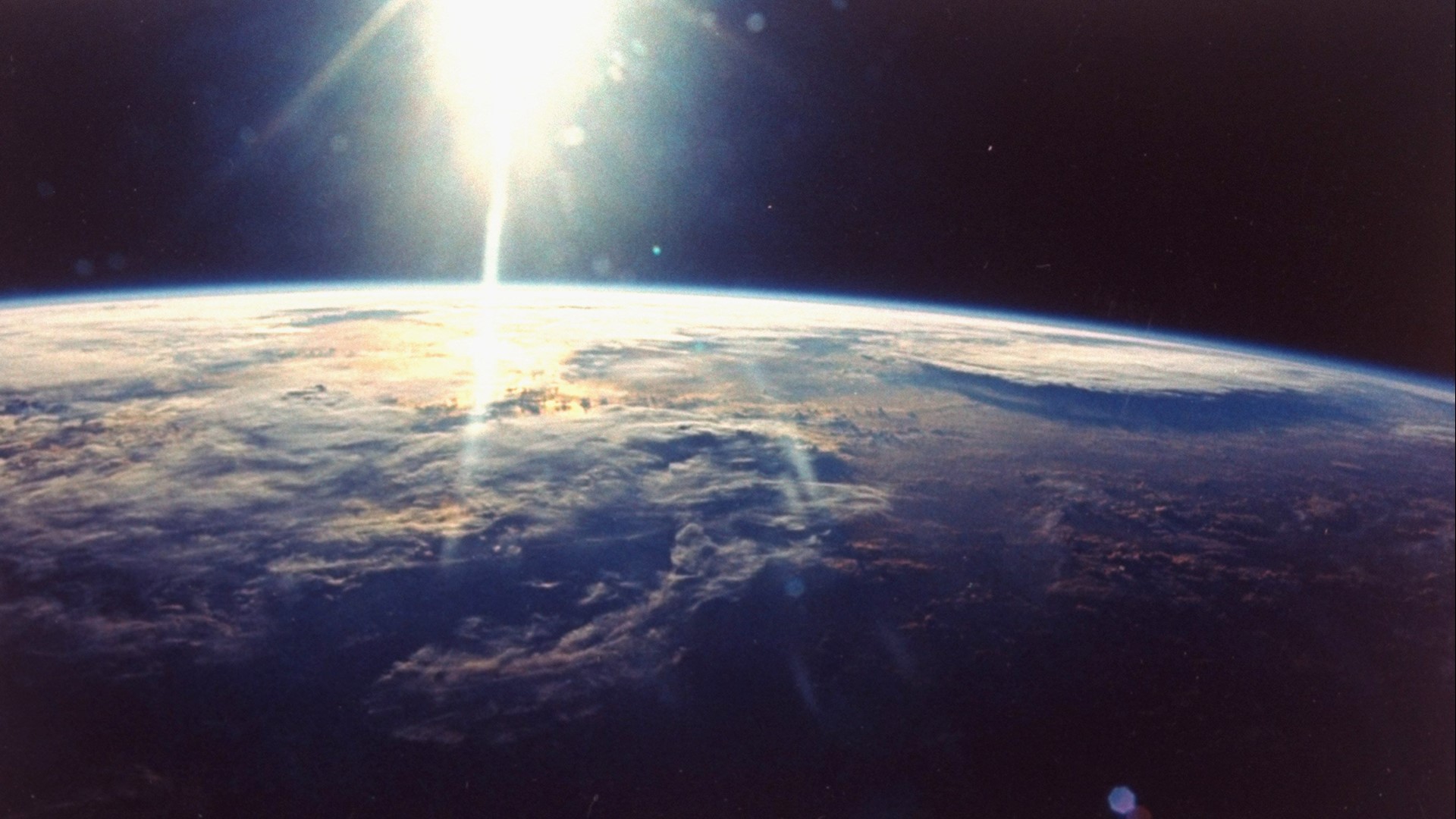HARRISBURG, Pa. — Just two decades ago, 2-out-of-3 Americans agreed, across party lines, that climate change was a concern. But it remains a hot-button political issue across the country and here in Central Pennsylvania.
Regardless of how it started, or the differing arguments in terms of its cause, we are experiencing the effects of a warming climate: hotter summers, warmer winters, stronger, more destructive storms, and more.
Dr. Edward Maibach is a public health communications specialist at George Mason University. He now focuses on crisis communication for climate change. Why? Because our warming climate is now a public health issue.
"We have really serious decisions to make," he said. "Until we understand the nature of what's happening in our backyard as a result of global climate change, we're not going to be very capable of making the best possible decisions."
To understand how we got to where we are, it’s important to look back at how the message of climate change has been delivered.
"The legend has it, NASA climate scientist James Hansen testified in front of Congress on a sweltering D.C. July day in 1988 I believe it was, and he issued a very clear warning: human-caused climate change is a reality and that it is going to create problems of cataclysmic dimensions unless we do something about it," Maibach explained.
At the time, testifying in front of a committee meant captivating a large audience, which scientists thought would have been enough.
"As scientists, our job is to do research to help understand the world better," he said. "We don't necessarily think it's our job to figure out what to do about how to fix problems that our science reveals. The fact there was a clear wakeup call in the summer of '88, but not sufficient...unfortunately, like most people throughout their day, one wake up call is not enough. You need to be woken up the next day and the next day, we need an alarm clock every day in order to get up and go to work and do what needs to be done."
Fast forward about 10 years to 1997, then-Vice President Al Gore traveled to Japan to negotiate the Kyoto Protocol, which committed the U.S. to reducing greenhouse gas emissions.
During this time, Maibach says there was not much partisan divide regarding the issue. However, not much else was being done about the problem of climate change, either.
"They saw it as a distance problem: distance in time, distance in space, and distance in species,” he said.
As time went on, partisan divides became deeper and rhetoric became more divisive regarding climate change.
"For me, the next big wakeup call was in 2006 when 'An Inconvenient Truth' came out," Maibach said. "It was a very clear signal, got a lot of attention, but it had an inconvenient truth...a warning brought to us by a Democratic politician."
Since then, we’ve seen interest and support for climate change rise and fall, depending on who was in office.
During Barack Obama’s presidency, the United States showed a more active role in fighting the effects of climate change.
“America not only recognizes our role in this crisis, it’s our responsibility to do our part to stop it,” a message that President Obama repeated over and over throughout his eight years in office.
Maibach says that there was a fairly sharp increase in public concern for climate change during the Obama Administration. However, he says that that concern dropped, especially among conservatives, during the Trump Administration.
“It’ll get cooler," President Trump said during a press conference regarding California wildfires. "Just watch. I don’t think science knows."


Fast forward to today, and the United States is back to taking a more active role in the global fight to lower emissions and reduce the impacts of climate change. President Biden brought the United States back into the Paris Agreement regarding climate change, for example, and is hoping to take more legislative action here at home to lower emissions, build clean energy, and keep the world spinning.

